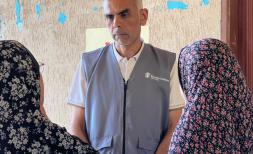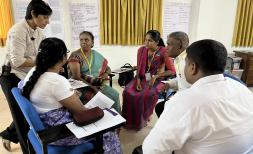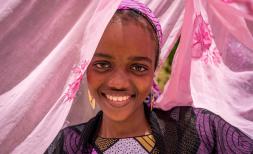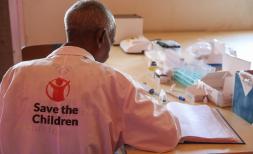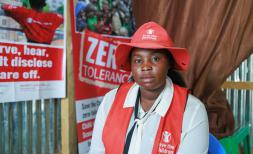From grief to influence: channelling the power of children and youth
On the 12th August we celebrate International Youth Day 2020.
Perhaps like many others, I have mixed feelings this year about “celebrations.”
The global pandemic is taking its toll around the world: It has forced the world’s schools to shut their doors to children like Arsema in Ethiopia and Tamer in Syria and over 1.6 billion other learners. It has triggered an economic downturn that will drive a possible additional 117 million children under the poverty line this year. It has resulted in rising hunger. More children are likely to experience violence, be subject to child marriage and enter the labour market far too young.[1]
Outrage at racial discrimination has swept across the globe, revealing the extent to which access to rights continues to be profoundly unequal for the black community, people of colour and those suffering from hatred or any form of racism . And, once again, we’ve seen record breaking temperatures, with 2020 being on course to be one of the top two warmest years in 141 years of temperature records.
My colleagues in Asia have correctly characterised these factors collectively as symptoms of a ‘planetary fever’[2].
A hopeful element in what can only be called a ‘bad year’ so far, has been the role that children and youth have played in challenging adults and decision makers on their responsibilities to people and to the planet.
Across the world, children and young people have called out the pandemic as exposing the same patterns of embedded power dynamics and inequalities as the climate crisis. They have protested racism and demanded social justice and non-discrimination. They are using their voices to push those in power to do the right thing.
So, this year’s theme of Youth Engagement for Global Action is more than timely.
At Save the Children, we believe intensely in the right of children and young people to be heard. Not only because this adds value to our work (it does), or because government policy, law and practice is improved by community perspectives (these do), or because children are their own best spokespersons (they are - take Greta! Malala!), but because we know that this is their human right. We fully realise the value in shifting power to children and young people to express their views safely, ethically and meaningfully in all matters that affect them. And for those views to inform decisions taken in their homes and by government actors and politicians.
In a recently released Save the Children Report on the Right of Children to Participate in Public Decision Making[3], we set out seven building blocks that must be present in any mechanism to support children’s participation. The research is informed by children’s views such as that of this 15-year girl in Yemen who observed that “If children aren’t active, positive leaders and know that they have to demand their rights while they are young, they will not be active and innovators when they become adults”.
Recommendations include the necessity for express recognition in law (and budgets) of the rights of children to engage in civic action; the creation of a conducive political, social and cultural environment, including addressing adult attitudes; and the provision for dedicated spaces for children to come together to participate in decision-making processes. There is good practice to replicate here in countries such as Uganda, Zambia and South Africa and putting these in place would be a benchmark test for ensuring people-centred open governance at international, national and local levels.
With a short 10 years remaining to make the 2030 Agenda a reality for all, I believe that it is only right that we act now to formalise inclusive and transparent spaces for children and young people to engage.
We need dedicated spaces and platforms, supported by the international community, States and corporations, to channel both their sense of grief felt over the loss of a future, as well as the energy and optimism of their campaigning action and their proposed solutions.
Yande 16, a child parliamentarian in Zambia sums it up best: "knowing that children can be able to participate freely and with freedom of speech, be able to talk about the issues that they face both personally, nationally or community level - I think it's phenomenal."
[1] https://www.un.org/sites/un2.un.org/files/policy_brief_on_covid_impact_on_children_16_april_2020.pdf, https://www.unfpa.org/news/millions-more-cases-violence-child-marriage-female-genital-mutilation-unintended-pregnancies
[2] Ibid.
[3] The Right of Children to Participate in Public Decision-Making Processes, Save the Children, Centre for Children’s Rights and Family Law at University College Cork and the Centre for Children’s Rights at Queen’s University Belfast 2020.
